Here is everything I can think of about the hiring process for librarians and archivists at York University Libraries (YUL) that might be useful to someone interviewing for a job.
I’ve worked there since 2007 and have been on five search committees, four times as a regular member on successful searches and once as chair where we had to cancel shortly before interviews because we had posted for a department head but then, due to structural reorganization, that position no longer existed.
A couple of months ago an old friend got in touch because he knew someone who was up for a job at YUL and asked if I could give them the inside scoop on what happens at interviews. I was happy to do it, and told everything I could. Then I got to thinking about the other candidates (their names had been posted internally) and thought to be fair I should see if they wanted any tips. However, I wasn’t going to email them at their current workplace. Two had no personal web presence; the other requested everyone be in touch through Twitter. I gave up.
To stop this from happening again, I decided to write down everything here so everyone has equal access.
These are my personal opinions, experiences and recommendations. This is not an official YUL document. I will revise it as and when needed. If you have any questions or comments, email me at work: wdenton@yorku.ca.
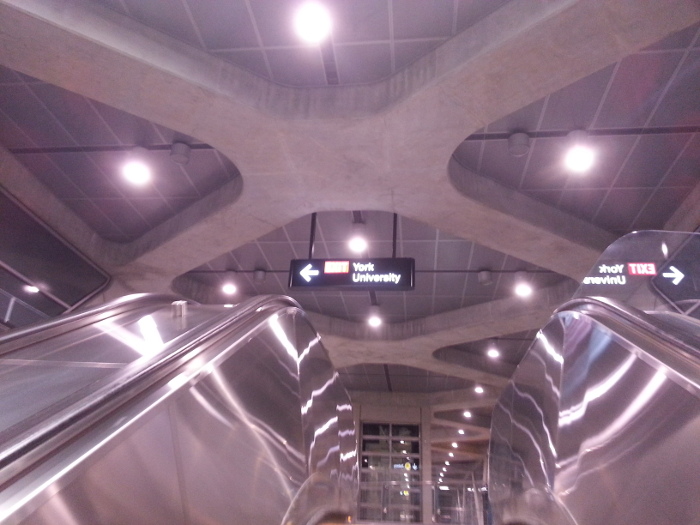
Getting to York
You can take the subway to York University station. This is wonderful. It’s been open half a year and we’re still delighted the subway is on campus now. If you’re coming from downtown, it’ll take up to 45 minutes to get up—as long as nothing goes wrong. But it’s the TTC, so something is bound to go wrong. Give it ninety minutes. Better to get campus far too early and have time to orient yourself, find the library, and stroll around looking at the 1960s Brutalist architecture and the newer bland buildings, than to have to run and arrive in a sweaty frazzle, or, worse, get out five stops early and try to take a cab.
If you’re driving a car you’re on your own.
What to wear
I’ve never seen anyone dress inappropriately, but if you’re unsure and want my advice, dress like a junior cabinet minister. It doesn’t have any bearing on your subject expertise, of course, but this is an interview.
This is an extremely important day for you, but the search committee isn’t going to dress up specially for it. We do not wear what they wear down on Bay Street. You’ll probably be the best-dressed one in the room.
Some background about YUL
A few points:
- The salaries are good. I’m not sure, but I reckon that if you got your MLIS five years ago, your starting salary would be about $100,000. (Due to 1990s provincial pay equity legislation, our salaries are set to be 87% of the average salary of faculty who are as many years post-PhD as we are post-MLIS. We benefit from this greatly. It’s why we often advertise for people with “up to four years post-MLIS experience” or the like: hiring someone who got their MLIS twenty years ago means they start very high.) Outside the GTA, you’d be making out like a bandit with this salary. In Toronto, it’s still very good, but the cost of living is high. Many York people live in Toronto, but they’re also spread out some distance on all sides, from Oshawa around to Hamilton and also to the north, because of this.
- The benefits are good.
- There are some really fine people here doing very good work.
- Our daily work was not affected much by the 2018 CUPE 3903 strike, except that things got a lot quieter—and the campus generally got more angry and anxious.
- We’re in a different union, YUFA, and it’s pretty active in asserting itself.
- We get tenure (but it’s called “continuing appointment” for us). This happens over your first six years, same as for professors, and if you’re successful then your seventh is a sabbatical.
- Working in a university is great.
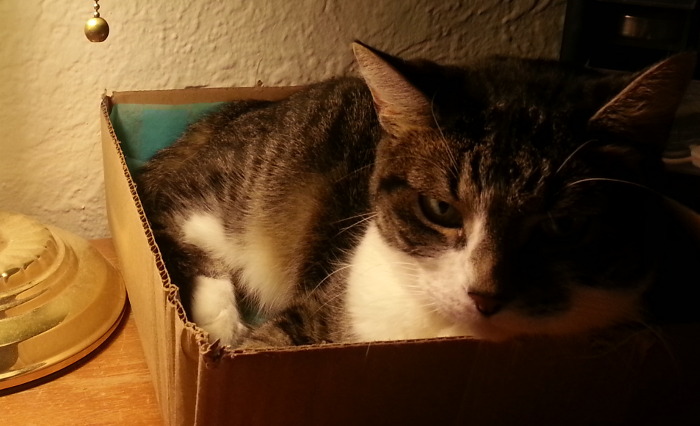
Outline of the search process
It takes five or six months to hire someone. Week by week, here’s what happens.
- Before it starts, there have been discussions between the dean, the department head, and the department. The job posting is drafted. An associate dean is assigned to the search committee and will act as the dean’s representative.
- Week 1: Two people are chosen from the department where the new person will work. The librarians and archivists in the department decide among themselves who these two will be.
- Weeks 2 and 3: Two other librarians and archivists, from the whole complement, are chosen. People volunteer and if more than two come forward there is a vote.
- Week 4: First preparation meeting: affirmative action (AA) discussion; chair is chosen; AA representative is chosen. The schedule for the rest of the process is booked out.
- Week 5: Second preparation meeting: settle the job posting; discuss what it means for candidates to meet the criteria or be excellent at them; do a checklist for marking the CVs. The ad is posted as soon as possible.
- Weeks 6–10: Get the word out. Read and review CVs as they come in.
- Weeks 7–8: Two interview prep meetings, to plan the day, including the presentation topic and the interview questions.
- Week 11: First shortlist meeting. We make the long list and request letters of reference. We need to have them all before inviting someone for an interview.
- Week 13: Second shortlist meeting. Shortlist is decided. It’s reviewed by the dean and then people are invited.
- Weeks 14–15: Interviews.
- Week 16: Decision meeting.
- Week 17: The chair and AA rep write their reports.
- Week 18: Recommendation is made to the dean and all the documentation goes to the Joint Affirmative Action Committee.
- Week 19: Notification to successful candidate.
- Week 21: Offer signed. Chair notifies unsuccessful candidates.
That’s if everything goes smoothly. Sometimes it takes longer.
It takes a long time for three reasons. First, we take it seriously. If we hire someone for a continuing appointment (not a one- to three-year contract, which we call a CLA, a contractually limited appointment) then they could work at York for decades, possibly until they retire. That’s a big decision for us to make. We have a responsibility to the university to make sure it’s the right one. Second, it’s a collegial process, which means there’s a lot of discussion among the committee members. Third, the committee’s process and decision are scrutinized by a higher-level committee (see the next section), and ultimately the hire is approved by the provost. It takes time for all those people to review the file.
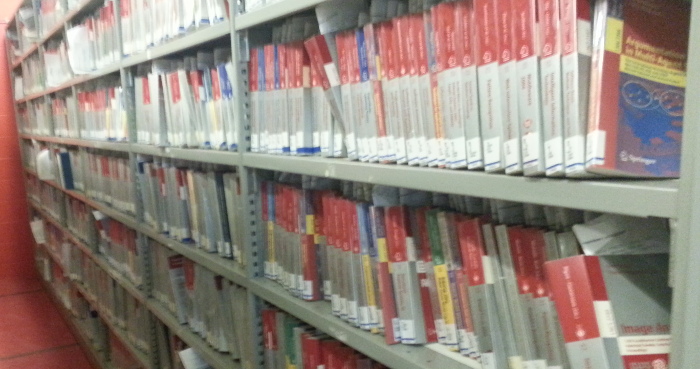
Affirmative action
York has an affirmative action program. Details are set out in section 12.21 of the current collective agreement. There is a university-wide plan, and then individual units have their own with different targets. The Libraries’ is not public (though it should be—I’ll ask). The current York goal is to have the population of professors, librarians and archivists represent what Canada is like. (YUFA is trying to set better targets—for their population to look like what Toronto looks like—but the administration hasn’t agreed yet.)
The plan defines four target groups: women, visible minorities (racialized groups), Aboriginal (Indigenous) people, and people with disabilities. In the Libraries it’s about 2:1 women:men, so we’re over the 40% target and that’s not a consideration. We’re also slightly over the 20% target for visible minorities (racialized groups). Our current plan’s target is to hire more Aboriginal or Indigeneous people and people with disabilities.
You will be asked several times through the process if you wish to self-identify. There is a short form to fill out. Like everything else, this information is kept confidential and will only be seen by the search committee and people who review and approve its decision.
Self-identification is taken into account when ranking candidates. In the simplest situation, if we come down to deciding between two candidates, both qualified to do the job and both substantially equal (the committee will have had a discussion about what that means), then if one of them has self-identified and is from a target group, they will be offered the job first.
I don’t know any statistics about how often AA comes into play in YUL or at York generally.
You can talk to the committee’s affirmative action representative to find out more (it’s their role to make sure the plan is applied properly), or YUL’s AA rep, or to York’s AA office. I encourage everyone to self-identify if they can. It will help YUL have a more diverse and representative body of librarians and archivists.
York’s Joint Affirmative Action Committee reviews all hiring decisions and carefully examines all AA aspects of the search.
Interview day
Yes, it takes a whole day. By the end of it you’ll be tired, but all the hard stuff is in the morning.
You will be a given the schedule in advance, and it should include the names of the search committee members. Look them up.
The day goes something like this:
- At 9 am, you arrive, someone meets you, you hang up your coat, and things begin.
- Presentation. You will have been given a topic a week before or so, and will have twenty minutes for it. All librarians and archivists will be invited, but chances are not many will show up. Don’t go over the time limit. That really looks bad. If you’re doing a mock presentation to a class of students, treat the audience as the class and just go into it; don’t start by saying, “I’m going to pretend you’re the students.”
- Short break.
- Interview around 10. Details below.
- Lunch. This will be with someone (possibly two people) not on the search committee. Their job is to take you for lunch (probably at the Schulich Executive Dining Room, the only restaurant on campus with cloth napkins), give you a nice time, and answer any questions you have about York and YUL. They will not report back to the committee. The lunch is confidential. Feel free to ask them anything. You’ll probably be tired and anxious and a little uncertain about everything, but this is a chance to ask some good questions about what YUL is like. Elsewhere it’s usual for the committee to have lunch or dinner with the candidate, but our process specifically avoids that because we want to assess people on their CV and presentation and interview, not on personal qualities and not on “fit.”
- Short break.
- Tour. You’ll be taken around where you’ll be working and introduced to people. Don’t worry, you don’t have to remember names. People will be very happy to meet you and chat, but let’s face it, sometimes they can’t reschedule things on their calendar, so if someone isn’t there, don’t take it personally.
- Around 3 or 4 pm, you meet the dean. The dean wants to meet you, because you might be recommended for hiring, and you want to meet her, because she’s the dean. The dean is the next step in the decision process after the search committee, and can overturn its recommendation, but that would be an extraordinary decision. Here you can ask any more questions you might have about your role, YUL and its new organizational structure, relocation help if you get hired, etc.
If you need any accommodations, do ask.
No one is going to pry into your personal life at any point in the day. If you’re from out of town someone might ask how the flight was or how the weather is back home, but that’s about it. The search committee just cares if you can do the job and if so how well.
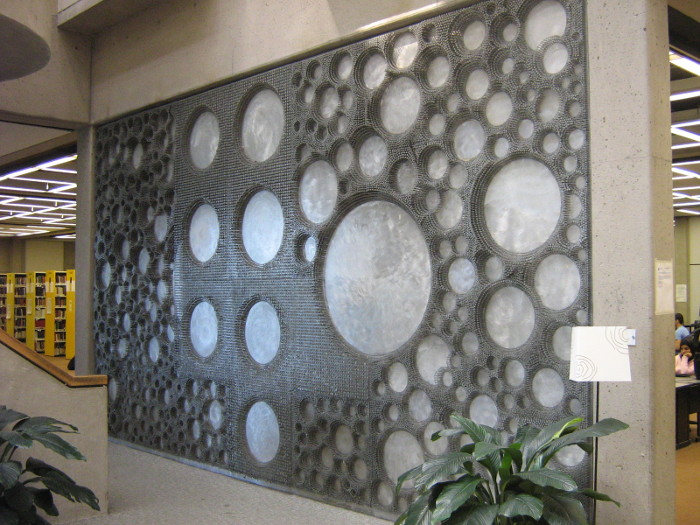
The interview itself
You’ll be sitting at one end of a table in a meeting room with three people on one side of you and two on the other. The chair will welcome you and explain a bit about how the interview will go, and then they’ll ask the easy first question, usually “What attracted you to this position?” Then they will ask you a set of questions on one topic, the next person will ask a set about another topic, until all the roughly two dozen questions have been asked. The last question is, “And do you have any questions for us?”
The committee members will be taking a lot of notes. This can be rather off-putting: sometimes you get off a really good line and no one seems to care, other times you say something innocuous and everyone puts their heads down and starts scribbling. Don’t let it bother you. We need to take notes because we’re interviewing three or four people and when we review everyone after we need to be able to refer back to exactly how well each answered the questions.
It’s OK to bring a pad of paper and jot down notes or a few words to help structure your answer. You can think a while before an answer, too. We’re not in a rush. It’s OK to go back and improve a previous answer.
Questions will include:
- One about diversity, because York has students from 180 different countries (a good number of whom are the first in their family to go to university) and faculty and staff also have many different backgrounds. Understanding what that means and implies and requires is important. (It’s quite educational for committee members to see how different people respond to this question.)
- One about dealing with a difficult professor.
- For instructional and reference librarians, situational questions about being in a classroom, at the desk, etc.
- Something about future of scholarly communications, open access, the changing role of academic libraries, etc.
- What your research interests are. If you’re new to the field you don’t need to have a strong record, but you should have interests and plans. Research is a key part of getting continuing appointment.
All of the questions are designed so the committee can assess how well you meet the qualifications. Make sure you can talk about everything in the job ad. We’re not asking the questions idly. They all have a purpose. If the job is to do X, and we’re looking for someone with experience with this, that and the other, who knows how to do A and B, then we’re going to ask about all of those. Those questions about disciplinary expertise are straightforward for us to grade. There are also questions where there is no one right answer, but there are good answers. Sometimes we ask questions not because we know the answer but because we want to find out what you know about the subject and how well you’re thinking about it. For example: “What are your thoughts about metrics and impact factors as ways of assessing research output?”
You’re probably familiar with the ACRL’s Framework for Information Literacy for Higher Education. Even if you’re not interviewing for an instructional position, review it.
Have questions to ask the search committee. It’s a bad sign when the candidate has none. You might wonder about support for and expectations about research, how the continuing appointment process works, what’s available to help your professional development, or what would make for a successful first year in your position. YUL has just reorganized itself into a new structure so I encourage you to ask about the department you’ll be in, how it’s going, what its plans are, how you would be working with others in it, etc.
The interview will take about two hours, but it will go quickly.
Everyone on the committee is looking forward to meeting you and to making the interview as productive and engaging as possible.
Interview us while we’re interviewing you
We’re looking for good people. If you’re good, then you’re looking for a good place to work. YUL can be such a place—I usually find it so. (Some colleagues feel differently.) While we’re interviewing you, interview us in return: do your research, ask questions, keep your eyes open, judge how you’re treated and how the day goes.
Here’s an anecdote. In 2007 I interviewed at McMaster University Libraries. (The presentation topic assigned was very much of its day: “Does the Library Catalogue Have a Role to Play in the Library 2.0/Web 2.0 Environment?” I had just read Owen Gingerich’s excellent The Book Nobody Read: Chasing the Revolutions of Nicolaus Copernicus, so I decided to talk about it, FRBR, the One Big Library and Ranganathan’s Five Laws of Library Science. I found my talk quite interesting but I don’t think it went over too well.) I wasn’t offered the job. That’s beside the point: I wouldn’t have taken it.
The last event of the day was to meet the head of the libraries, Jeff Trzeciak. Now, Trzeciak’s time at McMaster was staggeringly damaging, but at the time he was pretty new and was being “innovative” and “dynamic” and things were looking good. (That soon changed, believe me.) I went up to his office around four … but he wasn’t there. He’d gone. I was told he’d left. There would be no meeting with him. I was interviewing for a job and he just blew me off with no warning, no courtesy, no apology. I decided right there that if offered I wouldn’t take the job. I needed the money, too. Ultimately I didn’t have to decline the offer, but I would have, and it would have been the right choice. Interview us while we’re interviewing you.
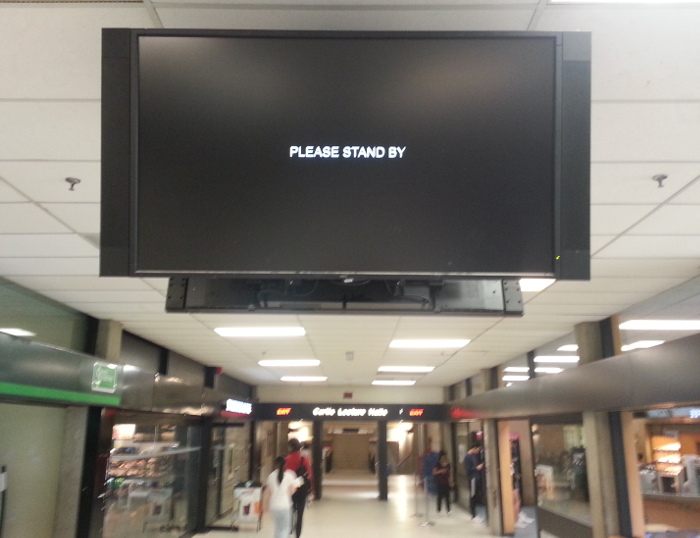
After interview day
In the private sector you might finish your interview and your future boss says, “You’re just the person we’re looking for! Can you start Monday?” In universities things go much, much slower. At York, as the timeline above showed, it might take four weeks for you to be offered the job—maybe six to find out someone else got it. Also, we don’t have a boss.
We know the delay is frustrating, but it’s a slow, careful and confidential process. As soon as we can tell you something, we will. If you need to know how things are going (for example, you’ve been offered another job) do get in touch with the chair of the committee.
It’s nice to send an email the next day thanking us for the interview. No need to send a written letter, which takes too long to arrive anyway.
If you have more questions
I’m happy to give a half an hour on the phone (evenings and weekends possible) to anyone who has more questions about YUL and their interview. Other librarians and archivists are also be glad to help, as long as they’re not on the search committee. Get in touch directly, or through a shared acquaintance, or ping them on social media. If you don’t want to talk to me but would like to chat with a particular type of librarian (with the same background as you, for example) then I can pass on your contact information.
Good luck!
 Miskatonic University Press
Miskatonic University Press